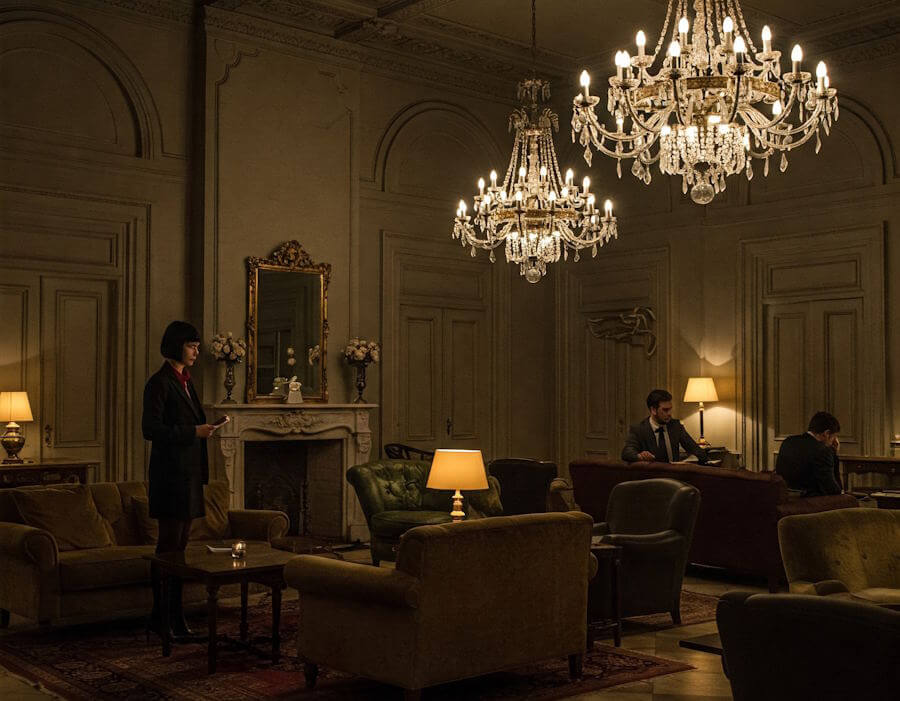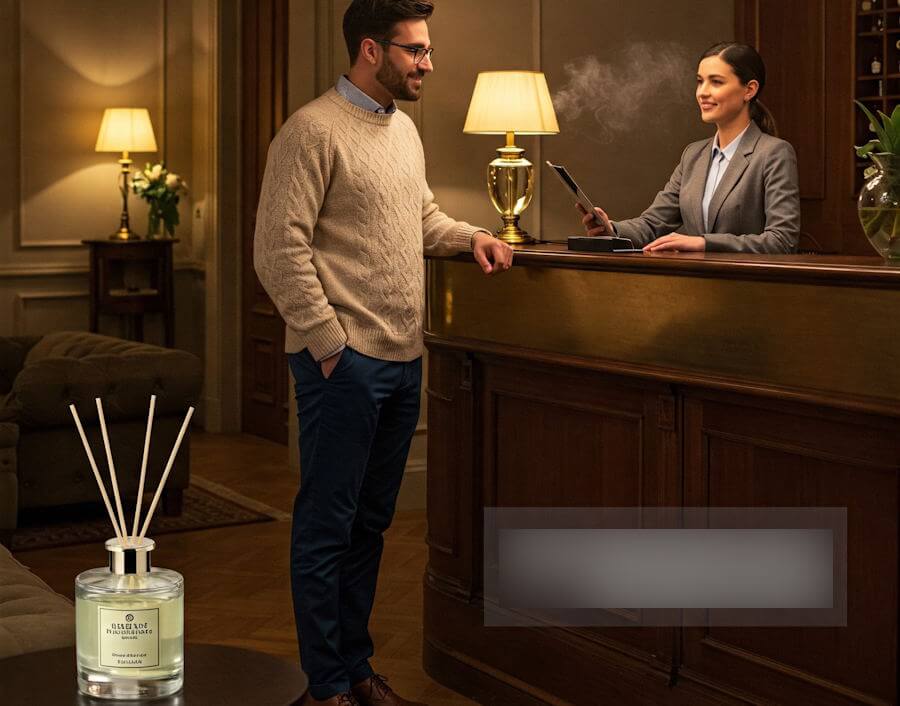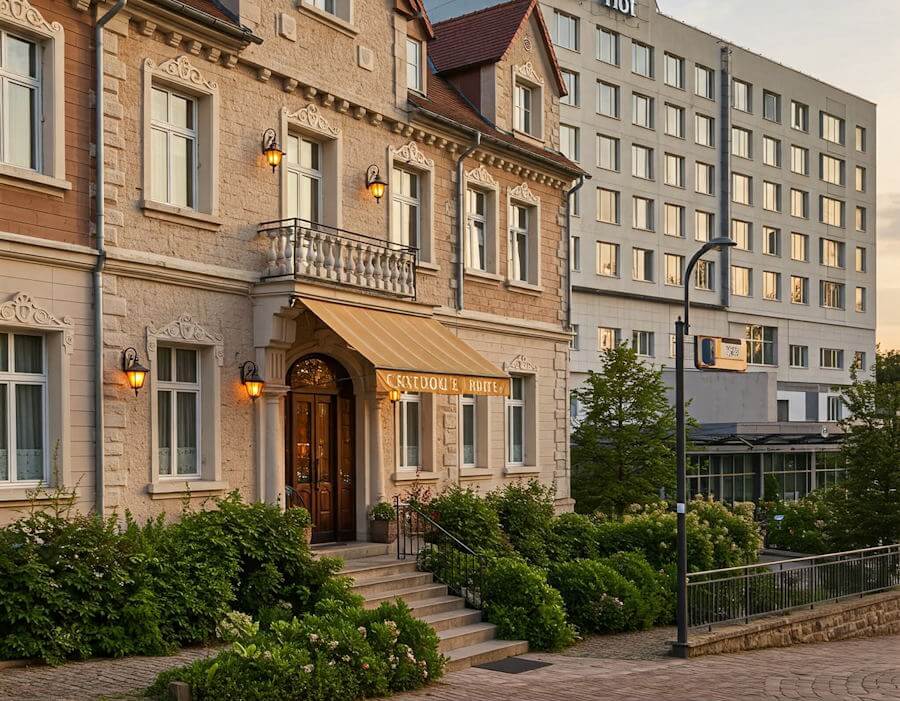Boutique hotels represent a distinctive category within the hospitality industry, characterized by a unique blend of personalized service, charming aesthetics, and intimate atmospheres. Unlike mainstream hotel chains that prioritize uniformity and standardized experiences, boutique hotels focus on creating individualized stays that cater to the specific desires and preferences of their guests. The rise of boutique hotels can be traced back to the late 20th century when travelers began seeking accommodations that offered more than just basic amenities; they desired experiences that reflected the local culture and atmosphere.
The concept of boutique hotels emerged from a need for unique and authentic travel experiences. Travelers started to gravitate toward properties that were not only comfortable but also reflected the character and history of the surrounding area. This trend was fueled by an increasing desire for personalized service, with many boutique hotels offering tailored experiences designed to make guests feel special and valued. As a result, these hotels often feature a limited number of rooms, fostering a sense of intimacy that is often lacking in larger establishments.
Another defining feature of boutique hotels is their design. Each property tends to have a unique aesthetic, shaped by its surroundings and the vision of its owners. Unlike chain hotels, which may adhere to a specific brand identity, boutique hotels embrace creativity and individuality in their architecture and interiors. This dedication to distinctive design not only enhances the visual appeal of the space but also contributes to an overall atmosphere that invites guests to relax and unwind.
In summary, boutique hotels have carved a niche within the accommodation market by prioritizing not just comfort, but also unique experiences that resonate with the personal tastes of travelers. Their combination of individualized service, distinctive design, and intimate settings continues to attract a demographic eager for more than just a traditional hotel stay.
The Essence of Personalized Luxury
Personalized luxury in the context of boutique hotels extends far beyond mere opulence; it is an intricate blend of bespoke services and unique experiences that cater to the individual preferences of each guest. Boutique hotels have carved a niche by offering tailored hospitality, ensuring that no two stays are the same. This emphasis on personalization not only enhances the overall guest experience but also resonates with the growing demand for authentic and memorable travel encounters.
At the heart of personalized luxury is the commitment to understanding and anticipating the needs of guests. Boutique hotels often gather information prior to a guest’s arrival, allowing them to make arrangements that reflect the traveler’s lifestyle and preferences. This could manifest in various ways, such as customizing room amenities, providing personalized welcome notes, or arranging activities that align with the guest’s interests. For instance, a hotel may offer unique culinary experiences or curate city tours based on a guest’s taste for art or adventure, thus creating a truly bespoke itinerary.
Attention to detail is a hallmark of personalized service at boutique hotels. The small gestures, such as remembering a guest’s favorite beverage, or providing specific pillow types, significantly elevate the luxury experience. Many boutique establishments employ staff members who are proficient in creating curated experiences that go beyond the conventional. These hotels often feature local artisans’ handiwork or regional décor, which further immerses guests in the cultural richness of the destination they are exploring.
Moreover, boutique hotels frequently emphasize one-on-one interactions, allowing staff to develop genuine relationships with guests. This creates an inviting atmosphere where guests feel valued, enhancing their overall satisfaction. Personalized luxury, therefore, is a profound acknowledgment of individuality, making each guest’s stay not just a visit but an unforgettable experience.
Unique Design and Ambiance
Boutique hotels stand out in the hospitality industry due to their unique design and ambiance, which play a pivotal role in creating memorable guest experiences. Unlike larger hotel chains that often follow standardized designs, boutique hotels pride themselves on their distinctive architecture and interior aesthetics, which can be deeply rooted in local culture and history. This thoughtful approach to design not only enhances the visual appeal but also elevates the overall atmosphere, making guests feel as though they are part of the unique locale.
The architecture of boutique hotels often reflects the heritage of the area, incorporating local building materials and styles that resonate with the community’s architectural landscape. As a result, each property tells its own story, allowing guests to immerse themselves in the history and culture of their surroundings. Whether it’s a renovated historic building or a newly constructed property inspired by traditional designs, these hotels often become landmarks themselves, giving visitors a sense of place and connection.
Inside, the interiors are meticulously curated, often featuring handpicked artworks, bespoke furnishings, and personalized decor that contribute to a cohesive theme. These design choices are made with the intention to evoke a particular mood or feeling, whether it be warmth, luxury, or tranquility. Many boutique hotels incorporate elements that showcase local artisans, further emphasizing the individuality of each space. Such personalized design not only enhances the visual experience but also fosters a sense of exclusivity, ensuring that guests feel special and valued during their stay.
Ultimately, the unique design and ambiance of boutique hotels play a significant role in differentiating them from larger establishments. The combination of architectural integrity, locally reflective interiors, and a focus on personalization instills a deeper emotional connection, enhancing the overall guest experience and making stays not just enjoyable, but memorable.
Culinary Experiences at Boutique Hotels
Boutique hotels are renowned for their attention to detail, particularly when it comes to culinary experiences. Unlike larger hotel chains that may prioritize standardization, boutique establishments often showcase locally sourced ingredients and creative menus that reflect the regional flavors. This emphasis on locality not only enhances the dining experience but also creates a deeper connection between guests and the culture of the area they are visiting.
Many boutique hotels partner with local farms, fisheries, and artisanal producers to bring fresh and innovative cuisine to their guests. This practice not only supports the local economy but also allows chefs to experiment with seasonal products, elevating the quality and creativity of their dishes. As a result, guests can enjoy meals that are not only flavorful but also representative of the culinary heritage of the destination.
Moreover, boutique hotels often offer experiential dining options that add another layer of engagement for guests. Many establishments feature interactive cooking classes where visitors can learn to prepare regional dishes under the guidance of skilled chefs. These classes not only provide an opportunity to understand the intricacies of local cuisine but also foster a sense of camaraderie among participants, further converting mere meals into shared experiences.
Additionally, gourmet tastings, paired wine dinners, and themed culinary events frequently take place in boutique hotels, enabling guests to savor a variety of flavors and regional specialties. Such unique offerings often transform dining from a necessity into a memorable event, serving not just as a meal but as an integral aspect of the boutique hotel experience. By integrating these culinary adventures into their offerings, boutique hotels curate unique dining experiences that enhance the overall stay, showcasing the rich culinary culture of their locations.
Local Experiences and Community Engagement
Boutique hotels often stand apart from larger hotel chains by emphasizing a deep connection with their local communities. This unique approach fosters a sense of authenticity that enriches the guest experience, setting boutique accommodations apart. By forming partnerships with local businesses, these hotels curate unique experiences that immerse guests in the cultural fabric of the area. From artisan markets to traditional culinary classes, the opportunities are abundant for travelers seeking enrichment during their stay.
Connecting guests with local tours allows travelers to explore hidden gems that might otherwise be overlooked. Whether it’s a guided walk through vibrant neighborhoods led by local historians or a gastronomic journey featuring the region’s distinct flavors, boutique hotels take pride in showcasing the true character of their surroundings. By collaborating with local artisans and companies, they encourage visitors to engage directly with the community, thereby enhancing economic sustainability and preserving local culture.
Further, many boutique hotels actively promote community engagement by organizing events that celebrate local traditions. Cultural nights featuring music, art, and storytelling become opportunity zones for guests to mingle with locals, creating shared experiences that transcend the typical hotel stay. This environment encourages positive interactions and fosters a deeper understanding of the destination.
Visitors staying in boutique accommodations often report feeling a greater connection to the place they are visiting, due in part to these curated experiences. They gain insights into the history, customs, and daily lives of the local population, enriching their overall travel experience. The emphasis on personalization not only enhances guest satisfaction but also solidifies the role of boutique hotels as champions of local culture and community. By prioritizing local experiences, boutique hotels create memorable stays that resonate well beyond checkout.
Personalized Services and Amenities
Boutique hotels are renowned for their dedication to providing personalized services and amenities that significantly enhance the overall guest experience. Unlike larger hotel chains, boutique establishments typically emphasize a more tailored approach, catering to individual preferences and needs. One of the foremost offerings is bespoke concierge services, where staff members go above and beyond to fulfill specific requests, whether it involves securing reservations at exclusive restaurants or arranging unique local experiences. This level of attention is designed to ensure that guests feel valued and cared for throughout their stay.
Moreover, boutique hotels often feature customized room amenities that set them apart from standard accommodations. From bespoke furnishings to individually selected artwork, each room reflects the local culture and the hotel’s personality, creating a unique ambiance for visitors. Guests may also find tailored in-room services, such as personalized welcome gifts or curated mini-bars, designed to make their stay even more memorable. This thoughtful attention to detail fosters a sense of connection and comfort, making guests feel as if they are in a home away from home.
An additional hallmark of boutique hotels is their capacity to provide tailored recommendations for activities and experiences well-suited to the interests of their guests. This could involve suggesting hidden gems within the local area, organizing personalized tours, or even advising on the best spots to explore based on guests’ hobbies. Such insights not only enrich the visitor’s experience but also allow them to immerse themselves in the local culture. In essence, the personalized services and amenities offered by boutique hotels transform a standard stay into an extraordinary one, reinforcing the notion of personal luxury and creating lasting memories for every guest.
Sustainability and Ethical Practices
As the hospitality industry evolves, boutique hotels are increasingly embracing sustainability and ethical practices, aligning their operations with the values of environmentally conscious travelers. This trend underscores a significant shift towards responsible tourism, where luxury and social responsibility intersect. Boutique hotels, with their intimate and unique settings, are well-positioned to implement green practices that appeal to the modern traveler who is not only looking for exceptional experiences but also prioritizes eco-friendliness.
One of the primary ways boutique hotels promote sustainability is through eco-friendly design. Many boutique properties choose to incorporate sustainable materials in their construction and renovation processes, focusing on minimizing their environmental footprint. This can include the use of reclaimed wood, energy-efficient lighting, and locally sourced materials that support regional artisans. Furthermore, some boutique hotels are designed to optimize natural lighting and ventilation, reducing reliance on artificial heating and cooling systems.
Waste reduction is another critical focus for many boutique hotels. This includes initiatives such as implementing composting systems, minimizing single-use plastics, and encouraging guests to participate in recycling programs during their stay. By fostering a culture of sustainability, these hotels not only reduce waste but also educate and engage their guests, making them active participants in the hotel’s environmental efforts.
Supporting local communities is also an essential aspect of the sustainable practices adopted by boutique hotels. Many establishments partner with local farmers and artisans, sourcing food and amenities from nearby producers to promote the local economy. This not only reduces carbon emissions associated with transportation but also enriches the guest experience by offering authentic local flavors and artisanal products. As a result, boutique hotels create a symbiotic relationship with their surroundings, benefiting both guests and the community.
Client Testimonials and Success Stories
Guests often seek more than just a place to stay; they look for a memorable experience that resonates on a personal level. Personalized luxury in boutique hotels has the power to facilitate such connections. A guest from New York shared their story about a romantic getaway at a charming boutique hotel in Paris. The hotel staff had taken the time to learn details about their relationship, leaving rose petals on the bed and organizing a private dinner on the terrace with breathtaking views of the Eiffel Tower. These thoughtful gestures created an atmosphere of intimacy that made their stay unforgettable.
Similarly, another guest recalled a trip to a coastal boutique hotel where the concierge tailored an itinerary blending relaxation and adventure, including a surprise sunset sail. The personal attention provided by the staff not only ensured that activities aligned with their preferences but also fostered a sense of belonging and care. Such experiences exemplify the essence of boutique hotels, wherein each guest feels valued and considered.
Emotional connections extend beyond the immediate experiences as well. An avid traveler expressed how the memories made during their stay at a boutique hospitality establishment lingered long after the vacation ended. Regular follow-ups from the staff, personalized messages on special occasions, and unique loyalty programs kept that bond alive, encouraging repeat visits and a genuine sense of community. In an era where travelers crave personalized engagements, these success stories highlight the boutique hotel advantage, demonstrating how tailored service can enhance the overall guest experience.
As we explore the impact of personalized luxury within boutique hotels, it is clear that such emotional connections not only foster satisfaction but also contribute to brand loyalty, thus reinforcing the allure of these unique accommodations.
Conclusion: The Future of Boutique Hotels
The landscape of the hospitality industry is ever-evolving, and boutique hotels are at the forefront of this transformation. As traveler preferences shift towards more personalized and unique experiences, boutique accommodations stand out by offering curated services that cater to individual tastes. This focus on customization is becoming increasingly important, as contemporary travelers seek more than just a place to stay; they desire an experience that resonates with their identity and enhances their journey.
One significant factor influencing the future of boutique hotels is the integration of advanced technology. Innovations such as artificial intelligence, data analytics, and mobile applications are enabling boutique establishments to offer tailored experiences that meet the diverse needs of their guests. For instance, through data collection and analysis, hotels can better understand their guest preferences, allowing them to deliver customized recommendations, special amenities, and personalized communications that enhance the overall visitor experience. This convergence of technology and hospitality is set to redefine guest interactions.
Moreover, the trend towards sustainability and localism is fueling the growth of boutique hotels. As travelers become more conscious of their impact on the environment and the communities they visit, boutique hotels are uniquely positioned to capitalize on this shift. Many of these establishments prioritize sustainable practices and collaborate with local artisans, contributing to the community and providing guests with an authentic cultural experience. This alignment with ethical tourism is likely to be a key driver of attraction for future guests.
As the boutique hotel sector continues to evolve, it will be essential for these establishments to remain agile and innovative. By embracing new technologies, focusing on sustainability, and catering to the changing preferences of travelers, boutique hotels are poised to maintain their status as premier choices for accommodations. Whether for business or leisure travel, the future of boutique hotels looks promising, presenting travelers with diverse and enriching experiences that elevate their journey.




